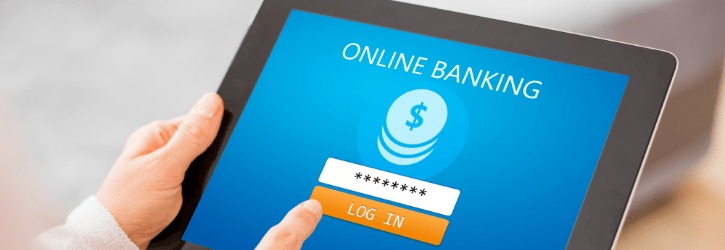Welcome To The Data Leak Lawyers Blog
We focus on the latest news surrounding data breaches, leaks and hacks plus daily internet security articles.
We focus on the latest news surrounding data breaches, leaks and hacks plus daily internet security articles.

We may be able to offer you a No Win, No Fee arrangement for a banking data breach compensation claim.
The risks of falling victim to a banking data breach are obvious. With so much ease of access to our finances, it can be simple for hackers and criminals to exploit the ease of access to steal money directly from accounts.
Although you have a duty to ensure that you’re vigilant to avoid giving information to hackers, there are ways criminal can get hold of information and use it against you. If your information has been leaked, breached or hacked, you may be eligible to make a claim for data breach compensation if a bank is responsible.

We’re representing clients in the We-vibe claim action who were victims of the data breach where their personal and intimate information was collected without consent.
We’ve been pursuing claims for a while now having agreed to act for people on a No Win, No Fee basis. We’re not just registering interests and information; we’re actively pursuing claims.
If you’ve yet to start a case, you’re still in time to join the action. We’re still getting inquiries for new cases, and it’s not too late to get started. We do recommend that you initiate your claim sooner rather than later, so here’s some information on how you can get started.

The Windrush data breach incident that happened on 7th April 2019 has forced changes to be adopted by the Home Office following the leak of information surrounding the compensation scheme.
Earlier this month, mass emails were sent out to people taking part in the Windrush compensation scheme, as well as other interested parties. Emails were reportedly sent out in batches of 100, and the first five batches are understood to have resulted in a data breach. Yet again, this was another case where recipients of the email could see each other’s information.
This kind of incident has happened so many times before, and it triggered one of the more severe compensation actions we’re involved ion; the 56 Dean Street Clinic leak. Changes are now set to be made.

A study by software giants Symantec has suggested that hotels leaking data is a far more common problem than most people may think.
Their research has indicated that as many as two out of three hotels are leaking data. The data being leaked includes names, email addresses, credit card information and passport information. This kind of data is more than enough for fraudsters and cybercriminals to do some serious damage.
Some 1,500 websites were analysed across 54 different countries as part of the study. This news comes just months after the monumental Marriott data breach that remains fresh in our minds.

The Information Commissioner’s Office (ICO) has issued a fine of £400,000.00 having concluded their investigations into the significant Bounty data breach.
We’ve already been contacted for help and taken claims for data breach compensation forward on a No Win, No Fee basis since news of the fine broke in the media. As many as 14 million individuals may have had their personal data shared, including new mothers and infants by extension.
The ICO has established that Bounty failed to properly inform users that their data would be shared for marketing purposes. The findings also confirmed that no one was able to give proper and informed consent as well.

The social media giant hasn’t had it easy lately, with a number of data breach incidents plaguing their public image. The recent revelations about the Facebook password data protection flaws is another headache to add to the pile.
It’s understood that some Facebook passwords have not been securely stored and have been accessible to thousands of Facebook employees. You would expect that one of the biggest social media platforms in the world would have the best protection for passwords, but this story suggests otherwise.
Users affected by the issue are set to be contacted by Facebook. This incident is one in a long line of recent data scandals Facebook has been embroiled in.

There has been a prosecution for a worrying Nuneaton and Bedworth Council data breach that’s an example of how employees can exploit the data they can access.
In this incident, former head of building control at the council, Kevin Bunsell, shared personal information about job applications with his partner. His partner had applied for the same job that the candidates whose data was shared had applied for, and she won the position.
Although we can only speculate as to the motives, we can assume that the reasons for sharing the data were to assist his partner in securing the position which she was eventually awarded.

Thousands of people have contacted us for help with data breach claims. Victims can be entitled to make a claim for compensation. The risks of reusing passwords is one of the first things people may need to consider.
The advice is to never reuse the same passwords and user credentials across different platforms. Despite this, people still do it. It means that being the victim of one simple breach could lead to several accounts being accessed. In fact, it could even mean those credentials are used to hack into a business you are employed with.
There’s a great deal that many people may not consider when it comes to reusing passwords and usernames. The mindset needs to change!

An issue that has led to a number of NHS fax data breach incidents has been reported, after mix-ups with a similar fax number has led to information going astray.
NHS data breach compensation cases are some of the more common types of claims our expert team help people with. A lot of the data breaches are caused by such simple errors that can be easily avoided. Despite this, they happen way too frequently.
The news of the fax mix ups is another example of this and comes to light after the accidental recipients of the data contacted NHS England about the incidents.
The NHS fax data breach issue reportedly stems from GP surgeries and pharmacies accidentally sending data to the wrong number. The number they have been sending information to in some cases belongs to a hotel group who has then been receiving the faxes incorrectly.
Some of the data that has been sent to the wrong fax number includes medication requests, certificates and dispensing vouchers.
It’s understood that the fax number for the hotel group is similar to the ones used to send information within the healthcare system. The hotel group has notified the Corporate Information Governance Team for NHS England.
As a result of these NHS fax data breach issues, NHS England has reportedly reminded GP surgeries and pharmacies about the importance of checking numbers. As some have recently called for a move away from faxes and pagers within the NHS, it’s claimed that this fax system is apparently the only way of sending this data within the healthcare system.
It sounds like something needs to change.
Any medical data breach can cause a huge amount of distress to the victims. When we see these simple errors over incredibly personal and sensitive data, it’s clear to us that more needs to be done.
As a firm of lawyers who specialise in data leak cases, we know how bad a breach can be for the victim. It’s important for these simple and avoidable data breaches are stamped out.

The Coffee Meets Bagel data breach was unfortunately revealed on Valentine’s Day. I.e. a dating app revealed a breach on the day of love and romance…
With the data breach reportedly having happened on 11th February 2019, I suppose its just a case of bad timing that notifications ended up being on Valentine’s Day. Either way, the American-based dating service that is used in the UK has suffered a breach.
This isn’t the first dating website that has been targeted for a data breach. We doubt it will be the last as well.
Fill out our quick call back form below and we'll contact you when you're ready to talk to us.